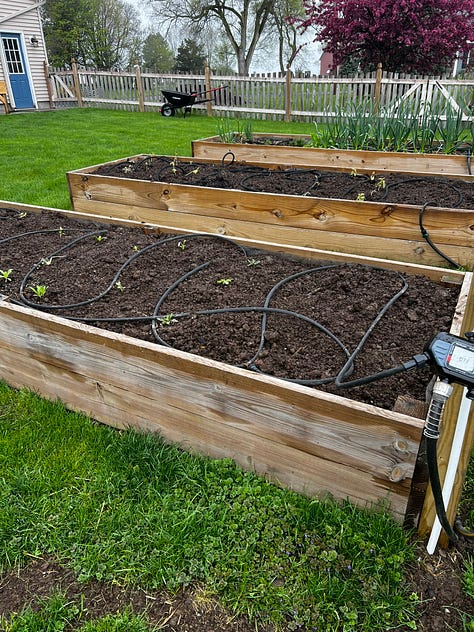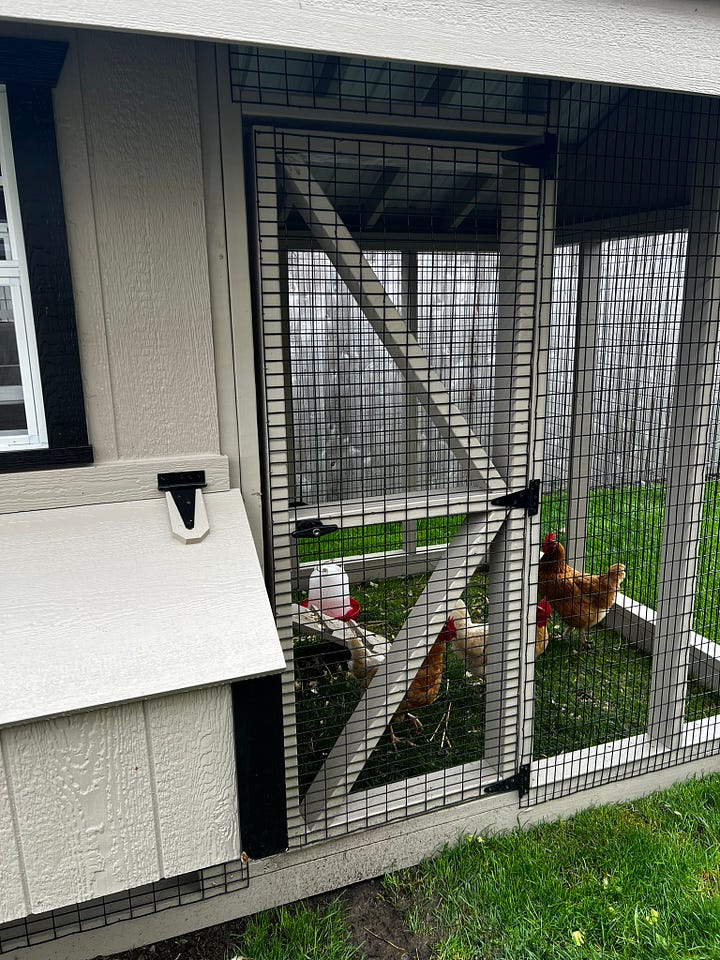5 Financial Mistakes to Avoid In Your 40s & 50s
Your 40s & 50s are you highest earning years, don't fritter them away by making these mistakes.
Did you know that a staggering 1 in 4 people in their 40s have less than $10,000 saved for retirement?
The decade we are in really impacts our ability to save, invest, and grow our wealth. In our 20s and 30s, most of us are still figuring it out and, let’s be honest, nobody really has any money then—so the recommended savings rates seem daunting. Don’t beat yourself up that, if by your late 30s you feel you have some catching up to do—you probably do, and that’s normal.
But by 40, if you have not already gotten serious about your finances, now is the time; your 40s and 50s are the most important decades of your life when it comes to building a successful financial future. Our 40s and 50s are often our highest earning years—our career is in full-swing and many are in a household with dual incomes.
However, during this time other things are happening in your life that make it easy to neglect your long-term financial health for short-term desires. We are buying homes, starting families, and expanding our lifestyle to match our higher incomes. We may have more money, but we also have more financial demands and desires.
To help you balance enjoying your life now but not at the expense of your future, avoid making these five mistakes:
Not Saving Enough For Retirement
Many people vastly underestimate how much they should be saving for retirement. There are many retirement factors you must consider to effectively plan. However, the most common mistake I see people make is significantly underestimating what their lifestyle costs them and are therefore saving to sustain a retirement that looks nothing like what their current income supports.
This is a very dangerous trap—particularly for high-income households. Make sure you have an accurate understanding of what your life is costing, and confirm that at your current savings rates, you will be able to sustain it when you stop working.
Note, if you’re not sure about your savings rates and retirement, check out my course on retirement planning ($1). Master Your Retirement Planning - The Basics You Need to Know (gumroad.com)
Ignoring the Potential Need for Life Insurance
While I’m not proponent of life insurance as an investment, I do encourage anyone in their 40s and 50s to make sure you have enough term-life coverage to protect your family if you pass away unexpectedly.
It is not a fun reality to think about, and it’s even worse to discuss with your spouse, but it’s important you consider how much your family would need in the worst-case scenario of your death. Also, don’t neglect any parents who are home or work less because their primary responsibility is the children—if something happens, you will need to make sure childcare and their other responsibilities are financially covered.
Not Having an Emergency Fund
Just as life insurance plans for the unexpected, so does an emergency fund. You’re at least 40 now, and you’ve experienced enough financial ups and downs to know, not having money for “just-in-case” scenarios is stressful and can lead to poor financial outcomes like relying on debt in emergencies.
At this age, there is no excuse for not having at least 3-6 months of savings set aside to cover any unexpected expense or emergency that happens. The truth is, in these critical decades relying on debt and not acting responsibly will have a much more detrimental impact on your retirement than any decades previously: you have less time to repair the damage poor financial choices have on your outcomes and you likely have others relying on your financial responsibility.
Overspending On Children & Neglecting Personal Savings
This pitfall may be the most difficult one to face and change or/adjust if necessary. While it's natural to want the best for our kids, it's crucial not to sacrifice our own financial security.
There are some foundational financial steps you need to be on track with before you sign your kids up for those expensive camps, or extra material goods. Every household needs an emergency fund, a healthy retirement savings plan, insurance coverage, and no useless debt. Some debt helps you get where you need to go, but you should be paying off your credit card debt, personal loans, and student loans before you expand your gifts and material goods to your kids.
And this will not be popular: college funding is a want, not a need. You must establish a healthy financial plan for your household before you worry about paying for college for your kids. Taking care of yourself and your financial health first will help your children immensely in your later years (trust me, I see this reality in my business all the time.)
Finally, one thing to keep in mind, most people will imitate what they see growing up as their financial plan. If children see you illustrating financial responsibility and prioritizing healthy finances over immediate wants, they are much more likely to implement sound financial choices in their own lives as adults.
Failing to Invest Wisely
To invest wisely there are two considerations: you need to build your total investment portfolio based on your financial plan and each account based on the purpose of the money.
Make sure you divide your money into buckets: short-term, mid-term, and long-term, and invest accordingly. In your 40s and 50s retirement money is long-term money, and as such, should be invested heavily (if not fully) in equities. On the other hand, money you have earmarked for emergencies needs to be invested using short-term strategies like high-interest savings accounts and money markets.
Investing wisely means each part of your portfolio has a purpose and is invested as such, and all your monies are working together to effectuate your success.
Rural Village Life Lately
Spring is finally greeting us here in North Country. 2024 has been a year of transitions for my business and our family. I will write more in-depth in the coming months about some of these things, but for now, we are busy enjoying the beauty of spring complete with tulips and all the colors you could imagine. I was able to get my garden started and our girls got a new coop!





Chicken parade out of their new coop!
Weekly Rewind: Last Week’s Video & Live
Last week was a week of focusing on pensions. My YouTube video focused on pensions and retirement for anyone with a pension. Then I had Vanessa Alanis, a Certified Financial Planner® at Chisholm who is an expert on the military retirement system come on the Friday live to talk all things military retirement.
Pensions & Retirement: What You Need To Know
For anyone with a pension, understanding your plan's various facets is imperative to successfully planning your retirement. In this video I explain pensions and their significance in retirement planning, highlighting three essential considerations for pension holders as they prepare for retirement: liquidity, taxes, and the Social Security Windfall Elimination Provision.
If you prefer to read, check out this topic also covered in last week’s Substack:
How To RETIRE If You Are in The Military w/Vanessa Alanis
Vanessa Alanis, a Certified Financial Planner at Chisholm and expert at military retirement joins me in this discussion about military retirement. We will dive into the complexities of planning your financial future as a service member and explore topics relating to the legacy and blended retirement system, and optimizing your TSP for a comfortable retirement.
Live This Week: Friday 10am EST
We will discuss the least popular of all the financial mistakes we make in our 40s and 50s—overspending on your children at the expense of your personal savings. We will explore the consequences of this decision and provide tips on how to strike a balance between supporting your children and securing your own financial future.





